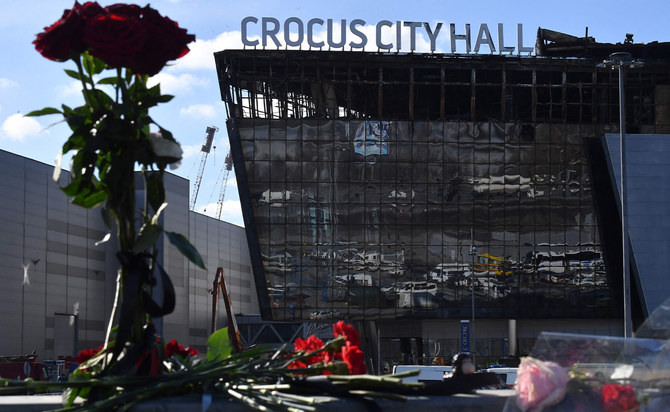ISLAMABAD: Pakistan’s Ambassador to the US Masood Khan visited the Moscow embassy in Washington on Tuesday for condolence over last week’s attack on a concert hall, Islamabad’s mission in Washington said on Tuesday, adding that Pakistan rejected terrorism in all its forms and stood with the Russian people in their grief.
In the deadliest attack inside Russia for two decades, four men burst into the Crocus City Hall near Moscow on Friday night, spraying bullets during a concert by the Soviet-era rock group Picnic. Alexander Bastrykin, head of Russia’s Investigative Committee, told a Kremlin meeting on Monday the death toll had risen to 139, with 182 people wounded.
Russian President Vladimir Putin has blamed the attack on “Islamic militants” but suggested it was also to the benefit of Ukraine and that Kyiv may have played a role. The attack has been claimed by the Daesh group.
“Ambassador Masood Khan expressed condolences with his Russian counterpart over the dastardly attack on Crocus Hall during his visit to Russian Embassy,” the Pakistani embassy in Washington said on X.
“‘Pakistan condemns terrorism in all its forms and manifestations’, Ambassador Masood Khan wrote these remarks while recording his condolences during his visit … ‘We salute Russian people who are facing this tragedy with courage, dignity and patience’.”
In a report in Pakistan’s state-run APP, Khan said he expressed solidarity with the Russian Federation and its people.
“Russian grief is our grief because time and again Pakistan has also been made a target of terrorism,” Khan was quoted by APP as saying.
Four men of Tajik origin have been remanded in custody on terrorism charges at Moscow’s Basmanny district court on suspicion of carrying out the attack. Three others, also of Tajik origin, have been remanded in custody on suspicion of complicity.
Washington has said it believes the Daesh claim. US officials have said they had warned Russia this month of intelligence about an imminent attack and that intelligence indicates an Afghan affiliate, Islamic State Khorasan (ISIS-K), was responsible.
Putin ordered a full-scale invasion of Ukraine in February 2022 after eight years of conflict in eastern Ukraine between Ukrainian forces and pro-Russian Ukrainians.
Ukraine has denied any role in Friday’s shooting and President Volodymyr Zelensky has accused Putin of seeking to divert blame.

















